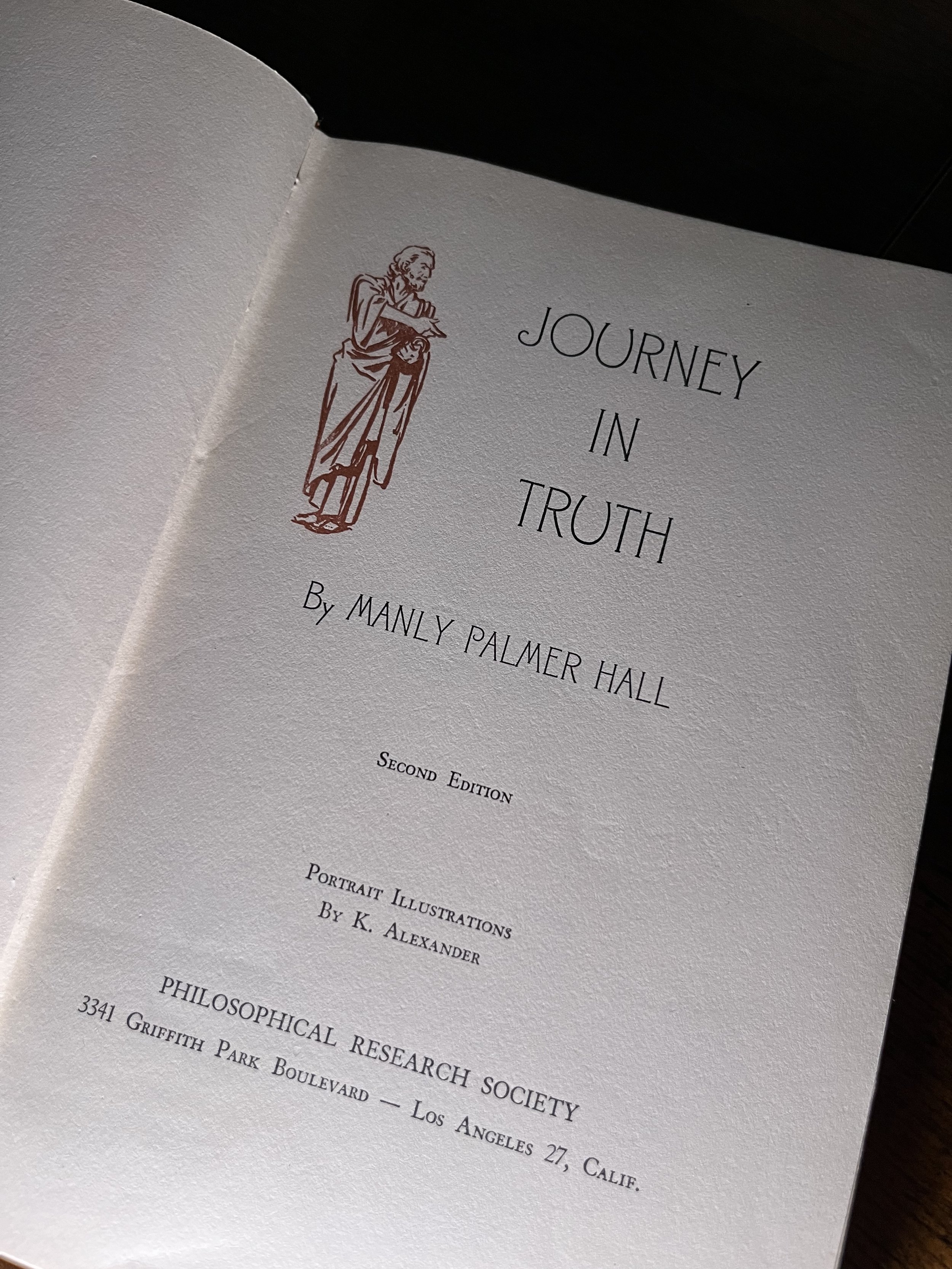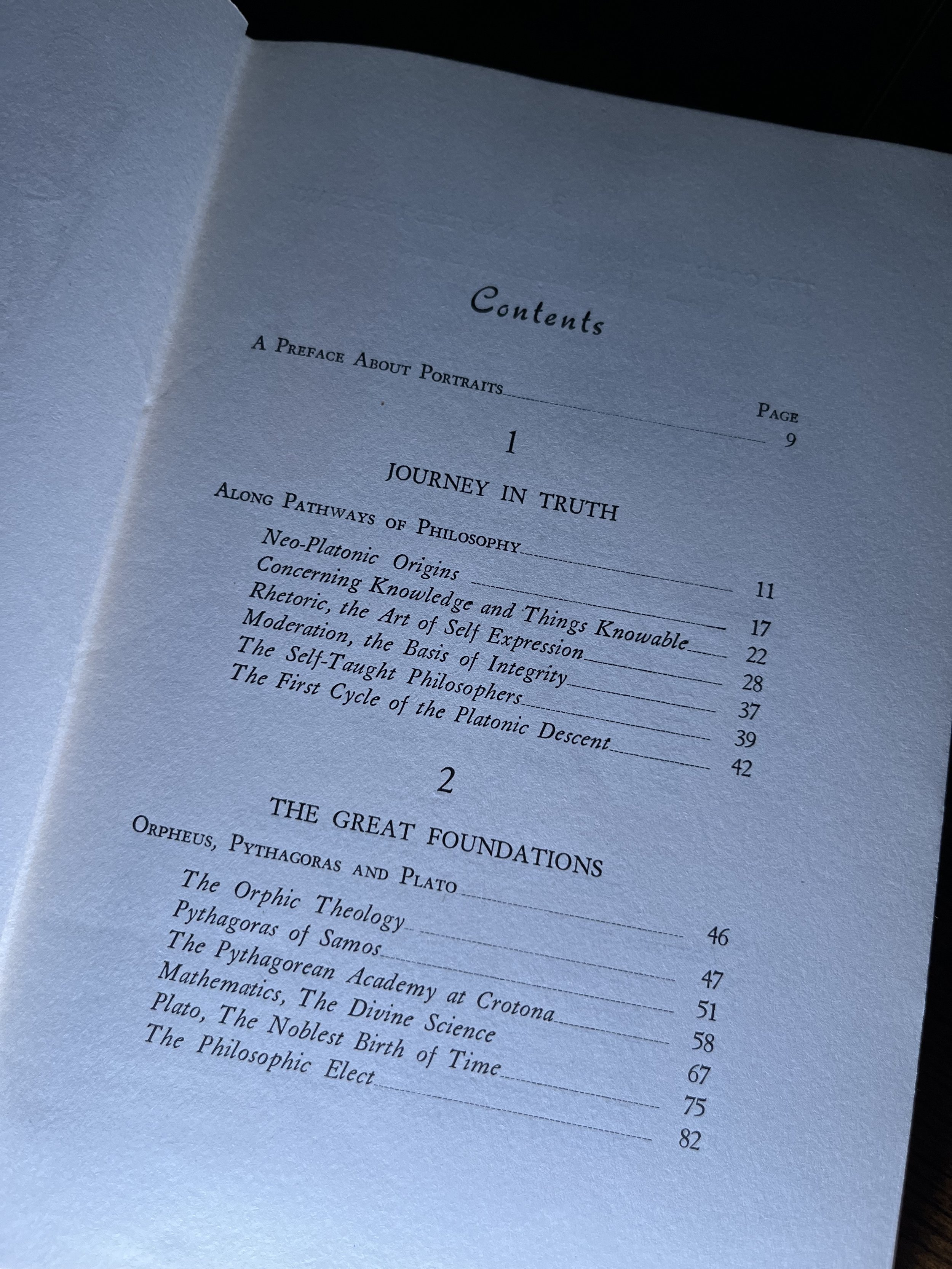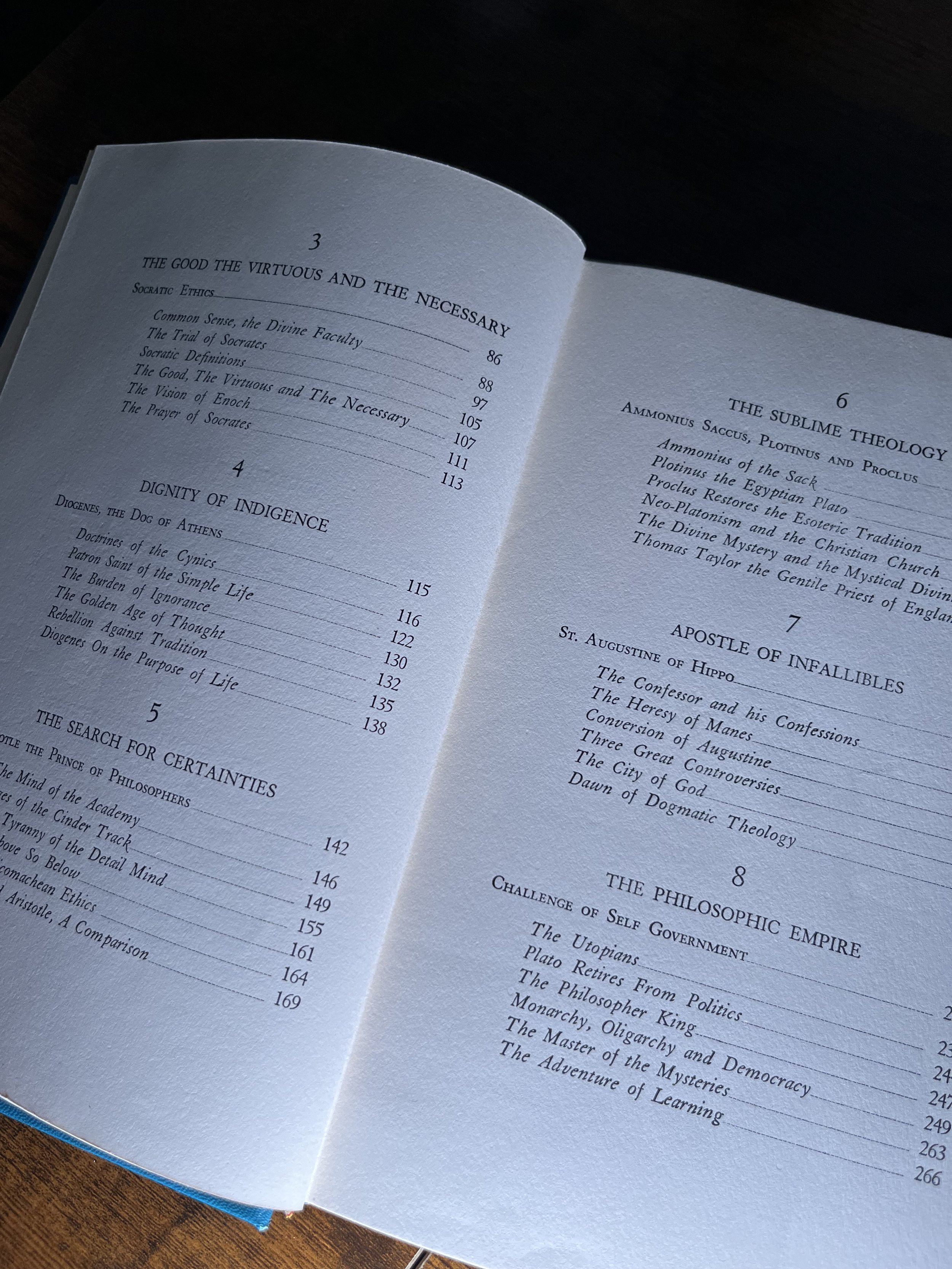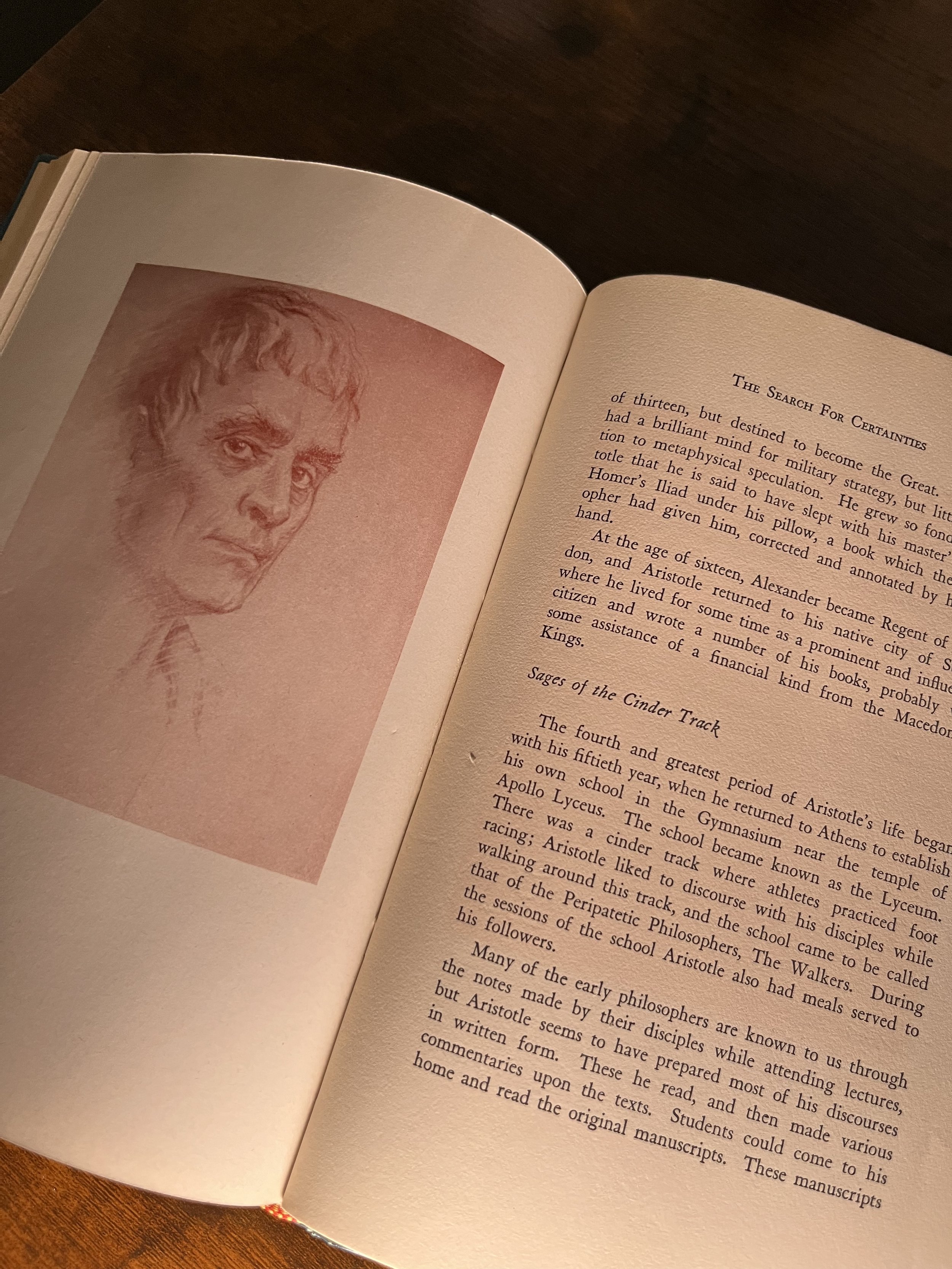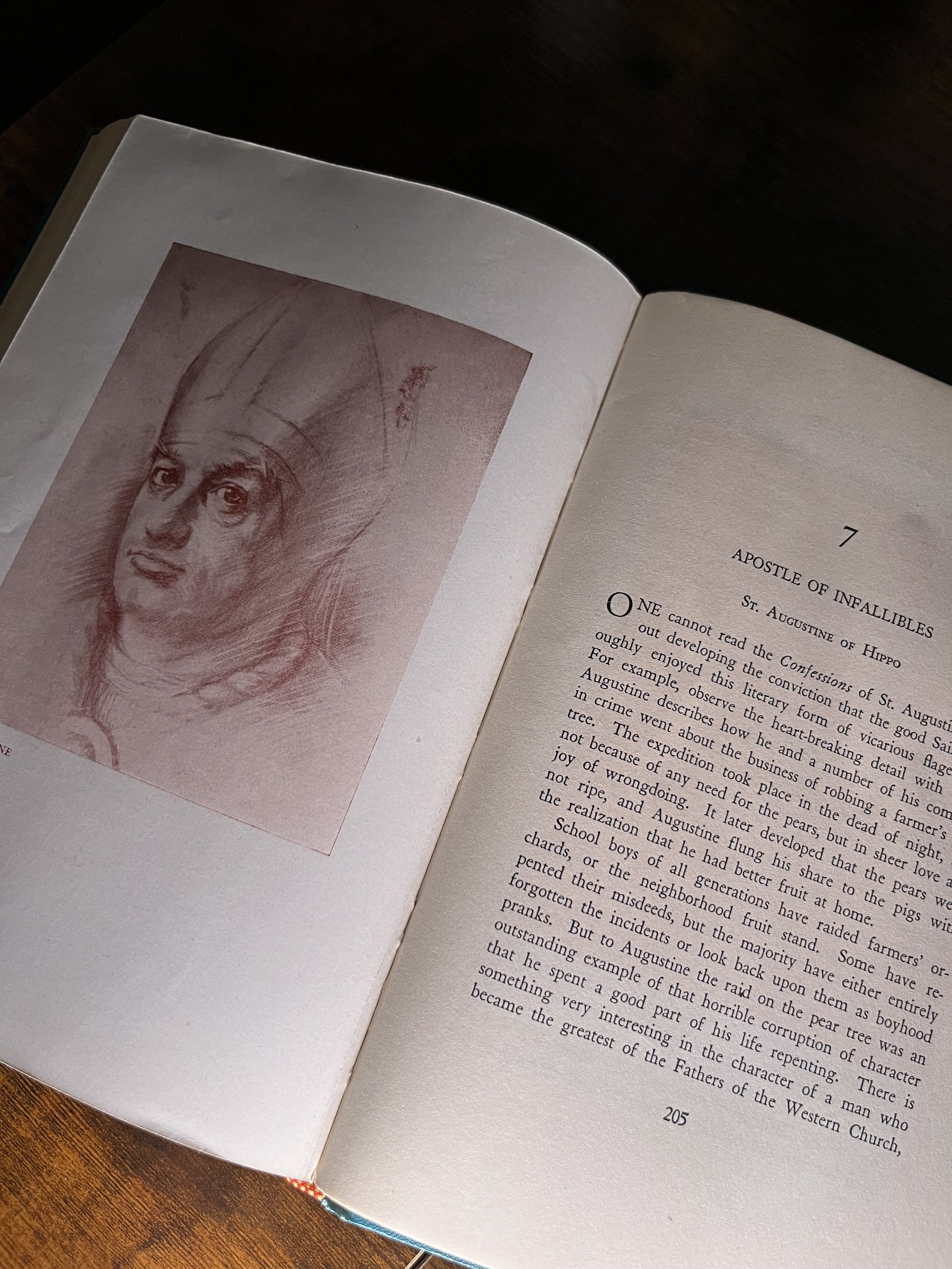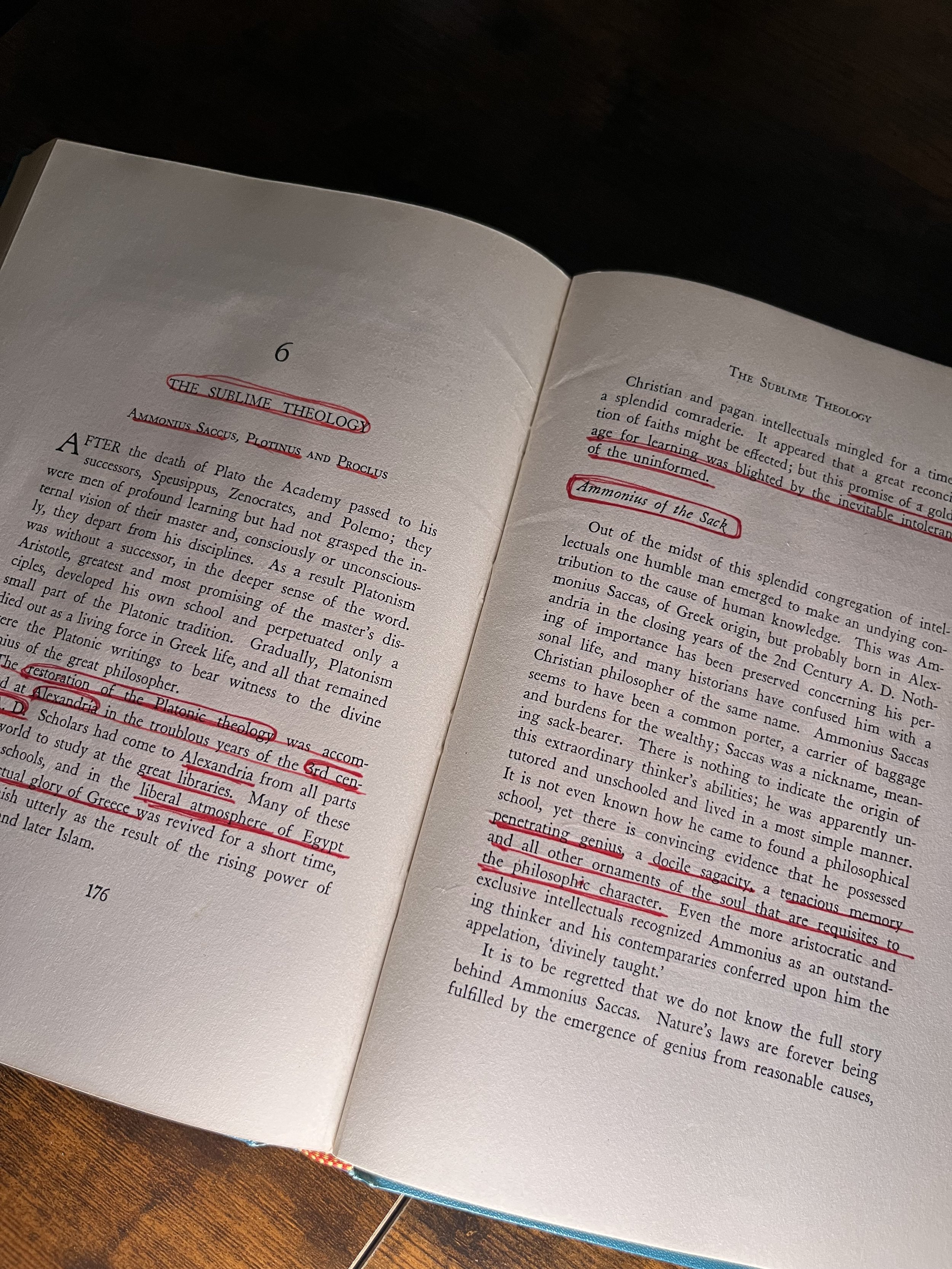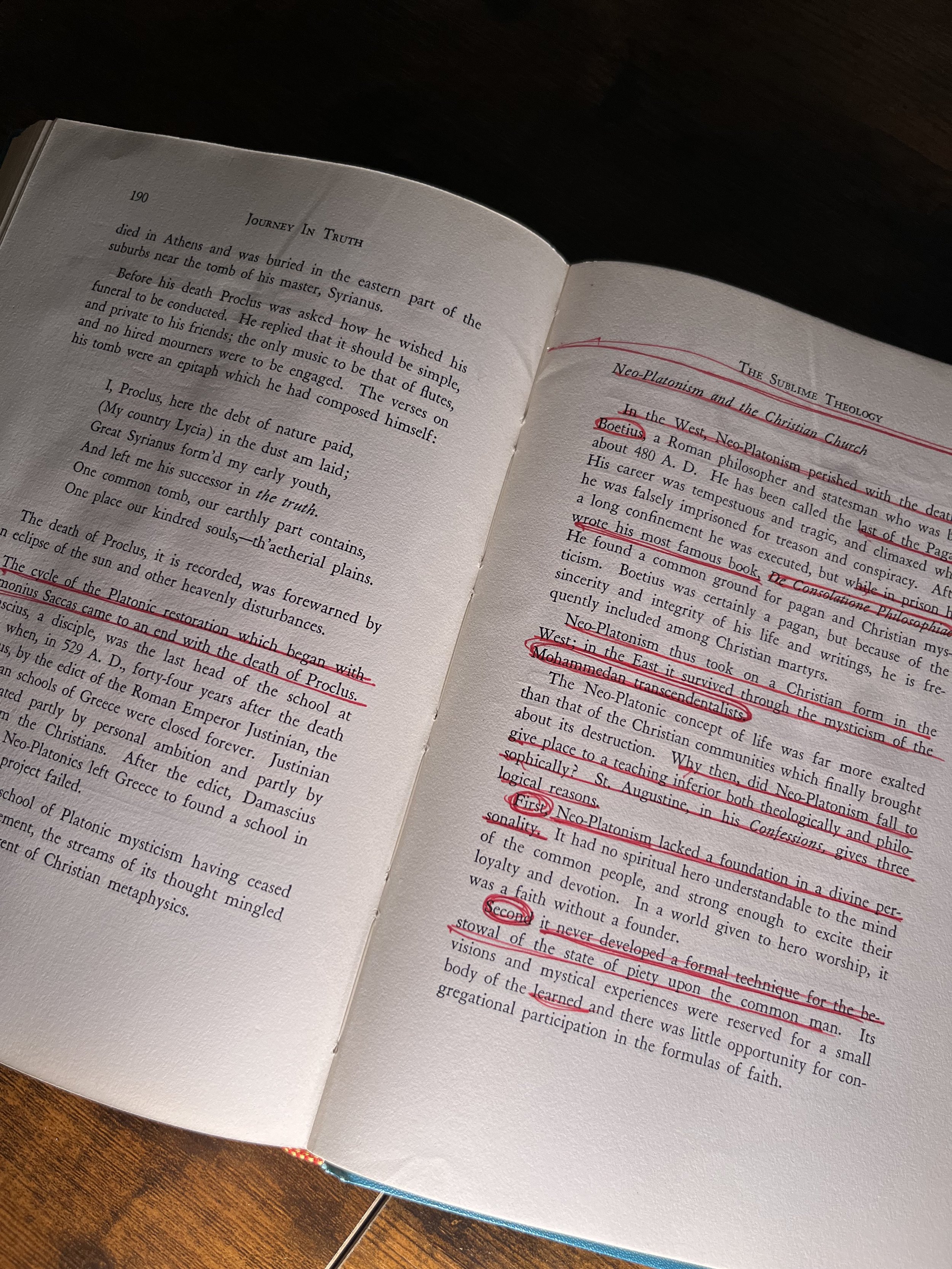Journey In Truth By Manly P. Hall
Journey In Truth By Manly P. Hall
Publishing: 1945 by the Philosophical Research Society, Second Edition
This book is based on a very important letter written by the great Neoplatonist, Plotinus. The letter was to a student of his that was just embarking on his journey in spiritual unfoldment. During this time there was a great deal of self-realization from some of the most influential thinkers for our modern world. SUPER RARE
Condition: Good / 5 of 7 portraits have been removed / pages 177-203 have sporadic heavy red-pen underlining / does not disrupt reading ability / other than those two things, book is in great shape
“The vision of Enoch describes how spiritual beings (human souls) beholding the monsters in the abyss, descended from heaven and took unto themselves the bodies of these creatures, entered into them so that the mindless received minds, and the forms became the bodies of the infant human race. In Genesis, the story is told in two ways: in the first account, Adam and Eve, driven from the Garden of Eden, put on coats of skins (bodies); in the second description, the sons of God (spirits) beheld the daughters of men (bodies) and descended unto them. In the Greek tradition the account is concealed in the story of Narcissus. This vain youth, beholding his own reflection int he surface of a pool, fell in love with this shadow of himself, and finally drowned as he tried to embrace his own shadow. Imprisoned within the mortal body, the human consciousness is in a state of exile, and Plato defined the physical body as a sepulcher of the soul. The spiritual man is imprisoned within his corporeal form as the oyster is locked within its shell. The experiences of the soul in the physical state are explained and described by Homer in the wandering of Ulysses, with the Trojan Way introduced as a clever symbolic subterfuge to represent the material condition of man. The original name of Troy was Ilium, from the word Ilus, meaning mud, or primordial slime. At the end of the wards against the Trojans, Home describes the ships of Ulysses as unfurling their sails to carry the adventurers back to their own far distant native land. This homeland is the heavenly world which the human soul left in its search for wisdom.” - Manly P. Hall, Journey In Truth
Journey In Truth By Manly P. Hall
Publishing: 1945 by the Philosophical Research Society, Second Edition
This book is based on a very important letter written by the great Neoplatonist, Plotinus. The letter was to a student of his that was just embarking on his journey in spiritual unfoldment. During this time there was a great deal of self-realization from some of the most influential thinkers for our modern world. SUPER RARE
Condition: Good / 5 of 7 portraits have been removed / pages 177-203 have sporadic heavy red-pen underlining / does not disrupt reading ability / other than those two things, book is in great shape
“The vision of Enoch describes how spiritual beings (human souls) beholding the monsters in the abyss, descended from heaven and took unto themselves the bodies of these creatures, entered into them so that the mindless received minds, and the forms became the bodies of the infant human race. In Genesis, the story is told in two ways: in the first account, Adam and Eve, driven from the Garden of Eden, put on coats of skins (bodies); in the second description, the sons of God (spirits) beheld the daughters of men (bodies) and descended unto them. In the Greek tradition the account is concealed in the story of Narcissus. This vain youth, beholding his own reflection int he surface of a pool, fell in love with this shadow of himself, and finally drowned as he tried to embrace his own shadow. Imprisoned within the mortal body, the human consciousness is in a state of exile, and Plato defined the physical body as a sepulcher of the soul. The spiritual man is imprisoned within his corporeal form as the oyster is locked within its shell. The experiences of the soul in the physical state are explained and described by Homer in the wandering of Ulysses, with the Trojan Way introduced as a clever symbolic subterfuge to represent the material condition of man. The original name of Troy was Ilium, from the word Ilus, meaning mud, or primordial slime. At the end of the wards against the Trojans, Home describes the ships of Ulysses as unfurling their sails to carry the adventurers back to their own far distant native land. This homeland is the heavenly world which the human soul left in its search for wisdom.” - Manly P. Hall, Journey In Truth
Journey In Truth By Manly P. Hall
Publishing: 1945 by the Philosophical Research Society, Second Edition
This book is based on a very important letter written by the great Neoplatonist, Plotinus. The letter was to a student of his that was just embarking on his journey in spiritual unfoldment. During this time there was a great deal of self-realization from some of the most influential thinkers for our modern world. SUPER RARE
Condition: Good / 5 of 7 portraits have been removed / pages 177-203 have sporadic heavy red-pen underlining / does not disrupt reading ability / other than those two things, book is in great shape
“The vision of Enoch describes how spiritual beings (human souls) beholding the monsters in the abyss, descended from heaven and took unto themselves the bodies of these creatures, entered into them so that the mindless received minds, and the forms became the bodies of the infant human race. In Genesis, the story is told in two ways: in the first account, Adam and Eve, driven from the Garden of Eden, put on coats of skins (bodies); in the second description, the sons of God (spirits) beheld the daughters of men (bodies) and descended unto them. In the Greek tradition the account is concealed in the story of Narcissus. This vain youth, beholding his own reflection int he surface of a pool, fell in love with this shadow of himself, and finally drowned as he tried to embrace his own shadow. Imprisoned within the mortal body, the human consciousness is in a state of exile, and Plato defined the physical body as a sepulcher of the soul. The spiritual man is imprisoned within his corporeal form as the oyster is locked within its shell. The experiences of the soul in the physical state are explained and described by Homer in the wandering of Ulysses, with the Trojan Way introduced as a clever symbolic subterfuge to represent the material condition of man. The original name of Troy was Ilium, from the word Ilus, meaning mud, or primordial slime. At the end of the wards against the Trojans, Home describes the ships of Ulysses as unfurling their sails to carry the adventurers back to their own far distant native land. This homeland is the heavenly world which the human soul left in its search for wisdom.” - Manly P. Hall, Journey In Truth


